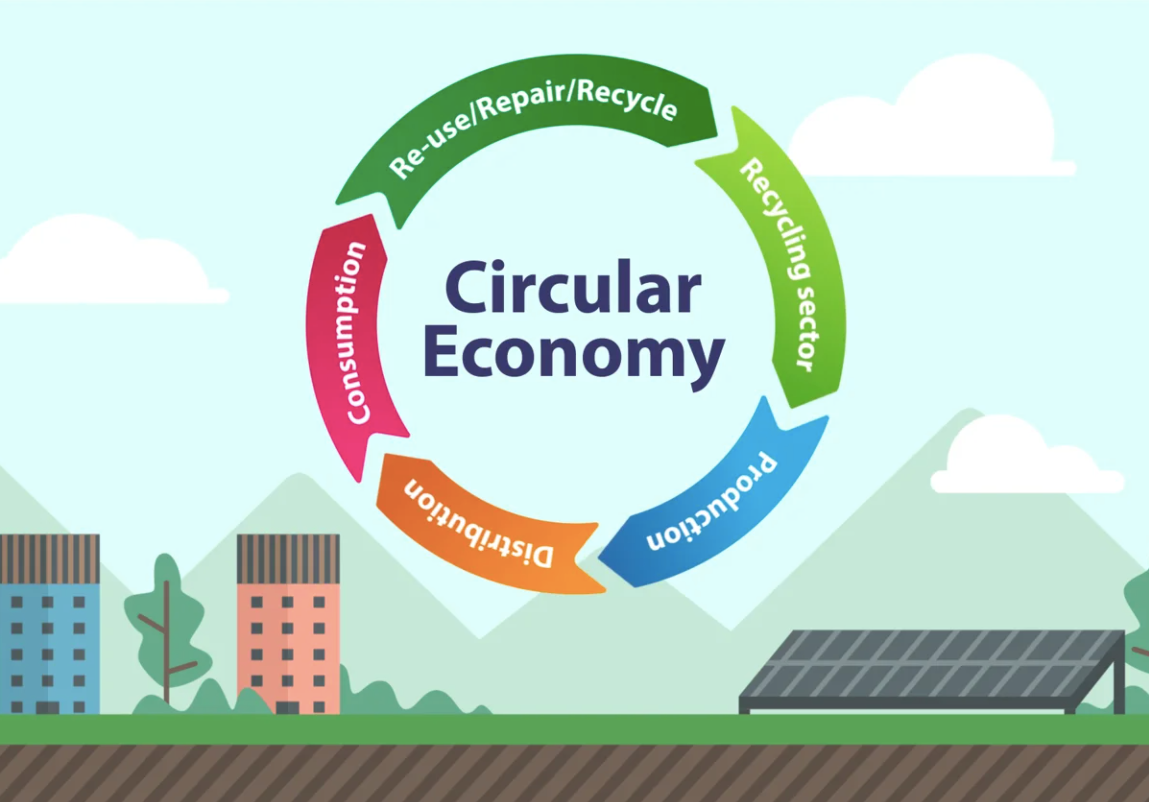Circular Economy and Global Emissionairy Carbon Offsets
A circular economy offers a transformative approach to production and consumption, aiming to minimize waste generation and maximize resource efficiency. In the realm of carbon offsets and GHG emissions, it presents several significant advantages:
- Reduced Emissions through Resource Efficiency: One of the primary benefits of a circular economy is its emphasis on resource efficiency. By designing products to be more durable, reusable, and recyclable, fewer raw materials are needed. This results in reduced energy consumption and lower emissions associated with extraction, processing, and transportation.
- Innovative Business Models: Embracing circular economy principles encourages the development of innovative business models centered around product-as-a-service, sharing economies, and remanufacturing. These models can incentivize companies to optimize resource use, extend product life cycles, and reduce emissions throughout the value chain.
- Opportunities for Carbon Offsetting: Circular economy initiatives generate carbon offset opportunities through practices like waste-to-energy conversion, carbon capture and utilization, and ecosystem restoration projects. These offsets provide a means for big GHG emitters to compensate for their unavoidable emissions by investing in projects that mitigate carbon dioxide in other sectors.
- Resilience to Supply Chain Disruptions: By prioritizing local sourcing, decentralized production, and closed-loop systems, a circular economy enhances resilience to supply chain disruptions caused by climate-related events. This resilience can mitigate risks for large emitters reliant on global supply chains, ensuring continuity of operations and reducing vulnerability to external shock
- Cost Savings and Economic Growth: Transitioning to a circular economy can result in significant cost savings for businesses through reduced waste disposal fees, lower raw material procurement costs, and increased operational efficiency. Moreover, the development of circular economy industries and technologies can stimulate economic growth, create jobs, and foster innovation in sustainable practices.
- Positive Brand Image and Stakeholder Engagement: Adopting circular economy principles can enhance the reputation of big GHG emitters by demonstrating their commitment to environmental sustainability. This proactive stance can improve stakeholder relations, attract environmentally conscious consumers, and differentiate companies in competitive markets.
How Global Emissionairy can help:
Commercial Property Development: Large developments such as big box stores require site work, or road improvements for increased traffic. GE partners with specialty contractors. These contractors execute this type of construction. Carbon offsets are generated utilizing eco-conscious vs. traditional methods.
Logistic or Merchant Delivery: These businesses use roadways for deliveries. Our partner contractors use supported GHG friendly techniques to repair and maintain these roads.
Data Centers: New data centers require infrastructure work for increased auto and truck traffic. These roadways will need improvement. Our credits are generated from eco-conscious paving techniques that are used in certain cases on these roads.
Transportation Support: Tractor-trailer trucks and their support facilities (truck stops, warehouse and transfer stations) require efficient road networks. These networks need maintenance and repair. Our credits are generated by specialty contractors that perform roadway construction.
In conclusion, the transition to a circular economy offers multifaceted benefits for carbon offsets and major GHG emitters. By promoting resource efficiency, innovation, resilience, cost savings, and positive brand image, it provides a holistic framework for addressing climate change while driving sustainable economic development.

